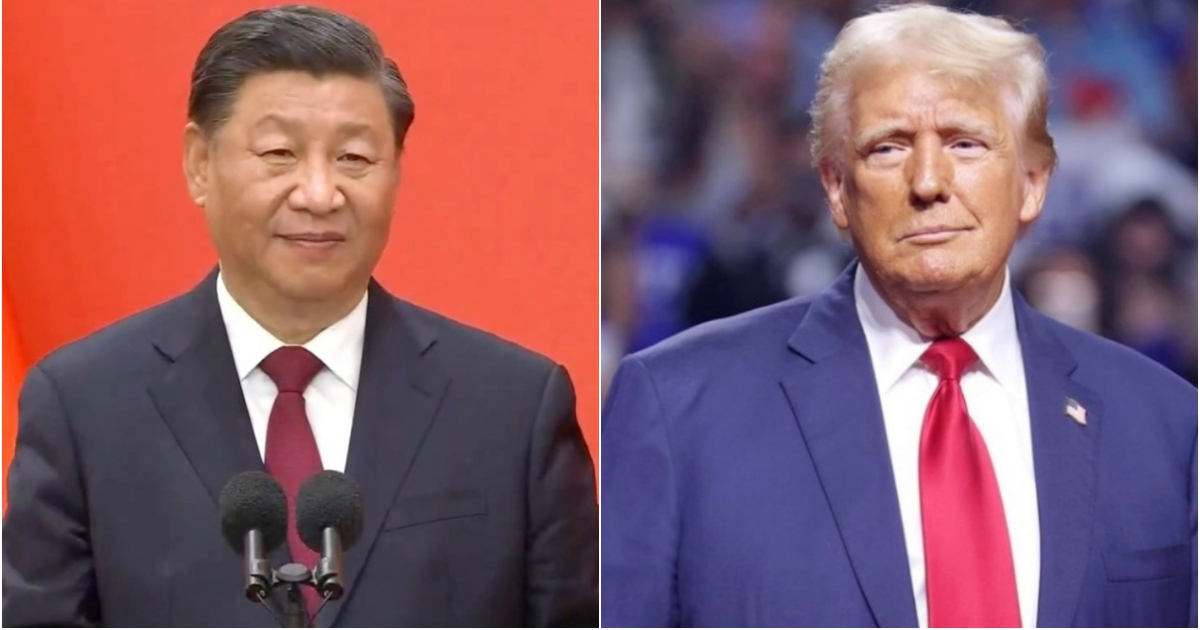
Related videos:
The trade war between China and the United States continues and shows no signs of easing.
The government of the Asian giant announced this Wednesday that it will raise tariffs on goods imported from the United States from 34% to 84% starting April 10.
It is a direct retaliation to the recent imposition of an additional 50% tariff by U.S. President Donald Trump on Chinese products; a measure that raised the total tariffs on Chinese goods to 104%.
China's response: A "firm reaction"
The Chinese Ministry of Finance was clear in justifying this new tariff measure.
In an official statement, it indicated that this is a response to the "repeated mistake" by the United States in systematically increasing its tariffs on Chinese products. In fact, the new levy of 84% will take effect starting Thursday, April 10th.
In addition to the tariff action, the Ministry of Commerce of China announced the inclusion of 12 American companies on its export control list.
These firms, dedicated to strategic technological areas, include drone manufacturers such as BRINC, aerospace companies like Novotech, specialized engineering firms such as Marvin Engineering Company, and radar manufacturers like Echodyne.
At the same time, six other companies have been added to the list of unreliable entities, including Cyberlux and Sierra Nevada, noted for their connection to the supply of military equipment.
The goal of these restrictions, according to Chinese authorities, is to prevent the exchange of products with "dual use" for civilian and military purposes, in an effort to limit the transfer of sensitive technology amid escalating tensions.
Trump raises the stakes and puts pressure on companies
For his part, President Trump justified his tariff decisions with a defiant rhetoric.
He assured that China desperately wants to reach an agreement, but doesn't know "how to start" negotiating.
He also emphasized that the White House is still awaiting a call from Chinese President Xi Jinping.
In addition, in an effort to counteract the internal consequences of this trade war, Trump renewed his call for large American companies to return to the country, thus avoiding the imposition of tariffs on products made in China.
Warnings and diplomatic tensions
The tone from Beijing was no less severe.
The Chinese authorities stated that "they will fight until the end" and that they have a "strong will" and "abundant resources" to confront the economic and trade restrictions from the United States.
The statement from the Ministry of Finance harshly criticized the U.S. tariffs, stating that they "severely undermine the legitimate rights and interests of China," and that they "greatly harm the multilateral trading system based on rules."
In the diplomatic sphere, China expressed its "serious concern" to the World Trade Organization (WTO), labeling the U.S. decision as "reckless" and warning that it could "further destabilize global trade."
Washington's Perspective: "A Loss for China"
From the American side, the reactions also came quickly.
Treasury Secretary Scott Bessent described the Chinese retaliation as "unfortunate" and stated that it would result in "losses" for Beijing.
In an interview with Fox Business Network, Bessent stated: “I think it's unfortunate that the Chinese do not want to come to the negotiating table, as they are the worst violators of the international trade system.”
Conclusion: Uncertainty on the horizon
The escalation of tariff measures between the two largest economies in the world has created a landscape characterized by trade uncertainty, diplomatic tension, and market instability.
The implications of this new round of tariffs are not limited to the bilateral sphere: global supply chains and international trade could be profoundly affected in the coming months.
Meanwhile, the international community watches with growing concern this trade confrontation, which threatens to further undermine the multilateral economic order and reshape the rules of global trade.
Frequently Asked Questions about the Trade War between China and the United States
Why did China decide to raise tariffs on imports from the United States?
China decided to increase tariffs on imports from the United States in direct response to the imposition of an additional 50% tariff by President Donald Trump on Chinese products. This measure is a retaliation for what China considers a "repeated mistake" by the United States in systematically raising tariffs on its products. Beijing aims to counteract the actions of the U.S. and protect its economic interests.
What are the implications of the new tariffs in the trade war between China and the United States?
The new tariffs between China and the United States significantly increase trade tensions between the two nations, impacting global supply chains and international trade. These measures could "further destabilize global trade" by imposing high additional costs on key products, affecting both businesses and consumers in both countries and beyond.
Which sectors could be most affected by the escalation of tariffs between China and the United States?
The most affected sectors include technology, manufacturing, and agricultural product trade. The restrictions and tariffs impact technology and manufacturing companies, as well as agricultural and electronic products, which could result in price increases for consumers and disruptions in business operations.
How has the Trump administration reacted to the tariffs imposed by China?
The Trump administration has responded with a defiant rhetoric, asserting that China wants to reach an agreement but doesn't know how to start negotiating. Trump has urged American companies to return to the country and has expressed a willingness to continue increasing tariffs if China does not withdraw its retaliatory measures.
Filed under: